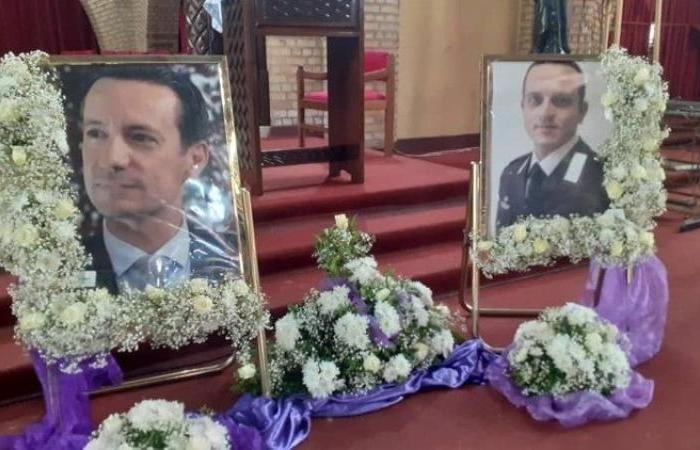The trial of six individuals accused of killing former Italian ambassador to the Democratic Republic of Congo (DRC), Luca Attanasio, in 2021 continues, with the defense presenting its case after the prosecution concluded its evidence in February 2023.
The trial, held at the Ndolo military prison in Kinshasa, has been closely watched by Italian authorities and international human rights organizations, who have expressed concerns over the fairness and transparency of the proceedings. The murder of Attanasio, who had been appointed as Italy’s ambassador to the DRC in 2017, was a shocking incident that highlighted the persistent insecurity and instability in the country’s eastern region. Attanasio was on a humanitarian mission when his UN convoy was ambushed by unidentified assailants, resulting in his death, as well as that of an Italian policeman and a Congolese driver.
The six accused, alleged members of a rebel group operating in the area, have been charged with multiple offenses, including murder, terrorism, and participation in an insurrectional movement. The trial began in November 2022, and the prosecution had called for the imposition of capital punishment on all six accused, a sentence that is legal under DRC law.
During the recent hearing, defense lawyers argued that their clients were innocent and that the prosecution had failed to present sufficient evidence to prove their guilt beyond a reasonable doubt. Joseph Amzati, one of the defense lawyers, stressed that physical evidence is necessary to establish if a person is dead, and that the degree of criminal responsibility cannot be determined. He also challenged the legality of the death penalty, which has been abolished in many countries around the world.
The Italian Republic, as a civil party in the case, has expressed its opposition to the death penalty and instead advocated for imprisonment. Boniface Balamage, the civil party lawyer representing Italy, has requested that the accused be given a sentence of incarceration instead of capital punishment. However, the DRC’s legal system allows for capital punishment, and the decision on whether to impose it rests with the judge.
The trial has been a complex and emotional affair, with Attanasio’s family and colleagues seeking justice for his death. The Italian government has also been closely involved in the proceedings, sending a team of prosecutors and investigators to the DRC to support the case. The trial’s outcome will likely have significant implications for bilateral relations between Italy and the DRC, as well as for the human rights situation in the country.
The pursuit of justice for the victims and their families remains crucial to upholding the rule of law in the DRC. However, the trial must also respect the rights of the accused and ensure that they receive a fair trial. The international community should continue to monitor the proceedings and support efforts to strengthen the DRC’s legal system and protect human rights.
The panel is expected to deliver a decision within the next ten days, and the verdict will be closely watched by observers around the world. The murder of Attanasio was a tragic incident that emphasized the need for peace and stability in the DRC, and the pursuit of justice for all victims of violence in the country remains a top priority.





